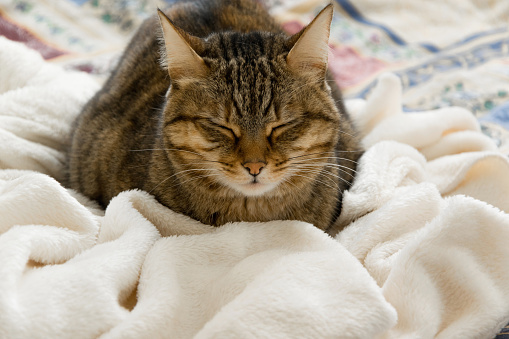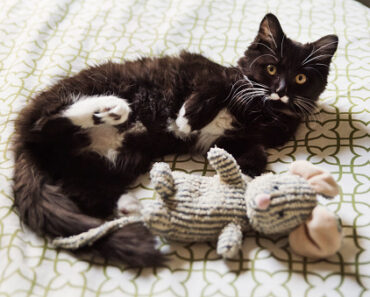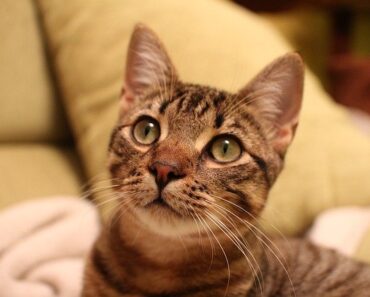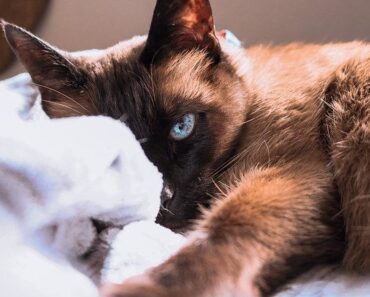Feline influenza, also known as Coryza, is a virus that attacks cats. It is not transmissible from human to animal or from animal to human. Relatively frequent in felines, this disease affects mainly cats without viral protection and unvaccinated. There are two kinds of Coryza: Acute Coryza and Chronic Coryza. Acute Coryza is the common virus, while Chronic Coryza is the result of poor care of Acute Coryza. Chronic Choriza is considered to be present for life.
Causing damage to the eyes, mouth and respiratory tract, Coryza is now relatively treatable. Important clarification, Coryza has nothing to do with the cat cold.

Cat flu: what are the causes?
This disease, which can be fatal for the not vaccinated cats, is due to a cocktail of three bacteria: the Calcivirus, the FHV (Feline Herpes Virus) and the Reovirus.
Calcivirus is a resistant virus responsible for the cat’s nasal discharge. This discharge can develop into oral ulcers or gingivitis. A cat contaminated by this virus is a carrier for at least two years, and in some cases a carrier for life.
FHV is a less resistant virus that cats give to each other through close contact. This virus is responsible for eye discharges in cats. Even when treated, cats are lifelong carriers, and the virus can be reactivated when the animal is stressed.
Reovirus is the least dangerous of the three, although it still causes infection of the eyes and respiratory tract.
Feline flu: symptoms and consequences
Symptoms are present for the animal usually 7 to 10 days with a possibility of chronic relapse. The cat’s immune system is weakened, causing repetitive sneezing, runny nose, fever, loss of appetite, bad breath and sometimes gingivitis. For cats that are particularly affected by the disease, lung infections may develop, causing difficulty breathing.
When particularly aggressive coryza occurs and no care is taken, the animal may die. If such a case occurs, it is essential to go to a veterinarian as soon as possible. A carrier animal can infect other cats. However, it is impossible for a human to be infected by a sick cat, just as a human with the flu cannot infect a cat.
Antidote against Cat Flu
There are several ways to prevent your cat from getting the cat flu.
Remedies
In terms of remedies, it is important to keep your cat warm and avoid taking him outside. Generally, the disease is treated with antibiotics, bronchodilators or anti-inflammatories. Sometimes homeopathic treatment is effective. In cases where your cat is severely affected at the eye level, an eye drop can also be helpful.
The veterinary consultation
A veterinary consultation allows for a vaccination of the animal. If your pet has never been vaccinated, this will be the opportunity for him to receive the treatment. On the other hand, if your pet has already been vaccinated, it is important to make sure that the necessary booster shots are given so that the protection is always effective.
Preventive solutions
The best way to prevent your cat from getting sick is to provide a healthy environment. Be sure to provide a fresh water fountain so that your cat can hydrate regularly and to change the water to prevent the proliferation of bacteria and viruses. Also think about a healthy bed and wash it regularly, especially if you have several cats. An adapted food also allows to reinforce its immune system and thus to make it more resistant to the external aggressions.
Inspect your cat regularly and be aware of the signs that do not deceive: repetitive sneezing, congested eyes, bad breath and fever. To be on the safe side, it’s best to vaccinate your cat and keep up with booster shots. If you have any doubts about your cat’s health, don’t take any chances with this highly transmissible disease. Isolate your cat as much as possible by preventing it from going to places where other cats might live. When in doubt, always consult a veterinarian who can do a thorough examination and note any symptoms to determine if your cat is healthy or not. If you have a young kitten, you should know that vaccination by a veterinarian can only take place after eight weeks.






